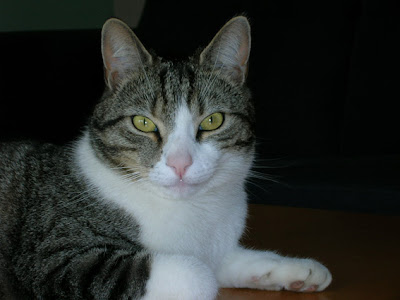MARIE: Almost
two years ago, I gave up ‘proper’ work and was instead employed by our local
authority as Jon’s carer. Back then, they assessed his needs at something like
11 ½ hours per week. There have been a few reassessments since, first to about
20 hours, then to 31 ½. Such a change in less than two years speaks unpleasant
volumes about Jon’s decline and the strains his diseases now put on our daily
lives.
The result is that I’m developing carer stress, and
it’s making me less able to care in a good way. Stress (from caring or any
other kind of work) makes you irritable, tired, unfocused, irritable, clumsy,
forgetful, irritable … you get the picture. Recently, I was at an excellent
talk by a woman who has worked with dementia sufferers for many years. One of
the issues raised was how you can know when it’s time to take a step back from
caring and leave it to the professionals. “When the carer is so burned out that
he or she can no longer care with kindness” was one part of the answer. That’s
so uncannily, precisely what I fear may be happening with us.
So I am taking a step back by leaving the nighttime
tasks involving drugs and pump etc. to our local nurses. It happens too often for comfort that at the end of
a long day of putting Jon’s needs before my own, I just haven’t the energy,
physically or mentally, to deal with the madness that has become a regular
feature of our evenings. What happens – not every night, but most nights – is
that Jon gets one or two ideas in his head that he just can’t shake loose.
One is that he needs the toilet. Nothing happens when
he goes, but the moment he’s back on the sofa or in bed, he feels the
urge to go again. Since he moves very unsteadily at night and has epic battles
to do up his trousers, this does not make for relaxing nights in. The other
idea is that he wants his duodopa pump off, and he will keep nagging with increasing urgency and insistence, until he drives me to
distraction or forces me from the room. The duodopa should be stopped as
late as possible so that the effect of the slow release tablets he takes
instead can last him until morning. At great cost to us both, we negotiated a
truce to the effect that I stop the duodopa at 10:15 pm, but in the grips of
his fixed idea Jon forgets the deal and forgets the logic, and I can’t reach
him with reason. And seeing that I’m already irritable…
I’m sure there are better ways of dealing with this,
but it’s clear that I can’t find them or carry them through at the end of a
demanding day. So nurses to the rescue. Starting last week, Jon gets
professionally nursed at bedtime, with an extra visit around 3 am for
another tablet and a general check on his condition.
I hope that will be enough to bring us to calmer
waters, at least for a time. As I write this, we are on a four-day trip away,
which should have been a relaxing anniversary celebration in a wonderful German
spa hotel, but is turning into yet another nightmare for entirely predictable
reasons. We’ll have to accept that we simply can’t get by without nursing help
anymore, and that means we can’t go away together anymore. One more loss.
I hope you won’t judge me harshly when I say that I
want my life back. It's too much to cope with now. I’m very much afraid that this marks the
beginning of the end of my time as a home carer.


